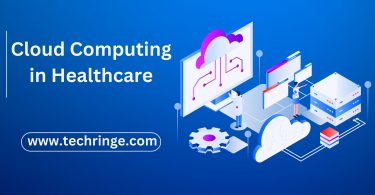Imagine a world where power, money and technology are no longer concentrated in the hands of a few. Dive inside the decentralized revolution, where inclusivity, autonomy and openness are redefining our reality. Discover how this paradigm shift is opening up a world of opportunities for individuals seeking true empowerment and a fairer, more secure future; and how decentralization is transforming our world. Explore its impact on society, finance and technology in this insightful article.
Introduction:
You’ve obviously heard the term “decentralization” a lot recently, and for good reason. It indicates a significant shift in how we organize and manage things such as society, corporations and technology. It’s gaining popularity in a variety of fields, from finance to technology, since it represents a promising vision of a more open, strong and clear world. In this essay, we’ll look at what decentralization is, what its major ideas are and how it will affect our future.
Understanding Decentralization:
Decentralization involves transferring power, control and decision-making authority from a single large authority or organization to a number of people working together. It can be applied in various areas, such as how we establish rules, manage finances or utilize technology. The major goal is to not rely on a single thing or individual too much; it will make things more available to everyone, and to ensure activities work even if something goes wrong.
Key Ideas of Decentralization:
Distributed Networks: Decentralization employs multiple people rather than a single big boss. Consider blockchain, in which several computers verify transactions, eliminating the need for a large bank.
Transparency: Decentralised systems aim for greater openness. Choices and actions are documented for all to see under systems such as decentralized governments.
Autonomy: Individuals have more control over their belongings under decentralized systems. In cryptocurrencies, you own your money via private keys, making it truly yours.
Resilience: Decentralized systems are more resilient to problems. If one part stops working, the rest can still keep going without interruption.
Inclusivity: Decentralization encourages everyone, no matter where they are or how much money they have, to join in and take part. This makes things simpler and fair for society and everyone.
What Decentralization Means for Us:
Money Freedom: Cryptocurrencies, such as Bitcoin, have altered our perception of money. Decentralized finance (DeFi) allows people to borrow, lend, trade and invest without the need for big financial institutions.
Shared Decision-Making: DAOs (Decentralised Autonomous Organizations) provide average people a role in choices, particularly in blockchain projects. This could assist in making decisions more equitable and democratic.
More privacy and security: Decentralised technology protects our data. Blockchain employs specific codes to prevent anyone from viewing or changing our data.
More Decentralization promotes the growth of fresh ideas and teamwork. Developers can build on open platforms and collaborate to create new technology and solutions.
Less Monopoly Power: In large systems, a few dominant groups frequently dominate everything. Decentralization is helping to level the playing field for smaller enterprises.
Challenges and Considerations:
While decentralization is beneficial, it also has drawbacks. several of the obstacles include…
How huge it can develop,
Government laws,
Energy use in various blockchains, and
Keeping our data safe.
Conclusion:
Decentralization is more than an occasional trend; it represents a significant shift in how we establish rules, use money and interact with technology. When it comes to issues like inequality, data leaks, and censorship, decentralization provides a method to make things more fair, secure and transparent. While there are still obstacles, the concept of decentralization is too compelling to ignore; it will shape our environment for the foreseeable future. It’s not just about machines and equipment; it’s about our priorities in a world where people are more interconnected.




Leave a Comment